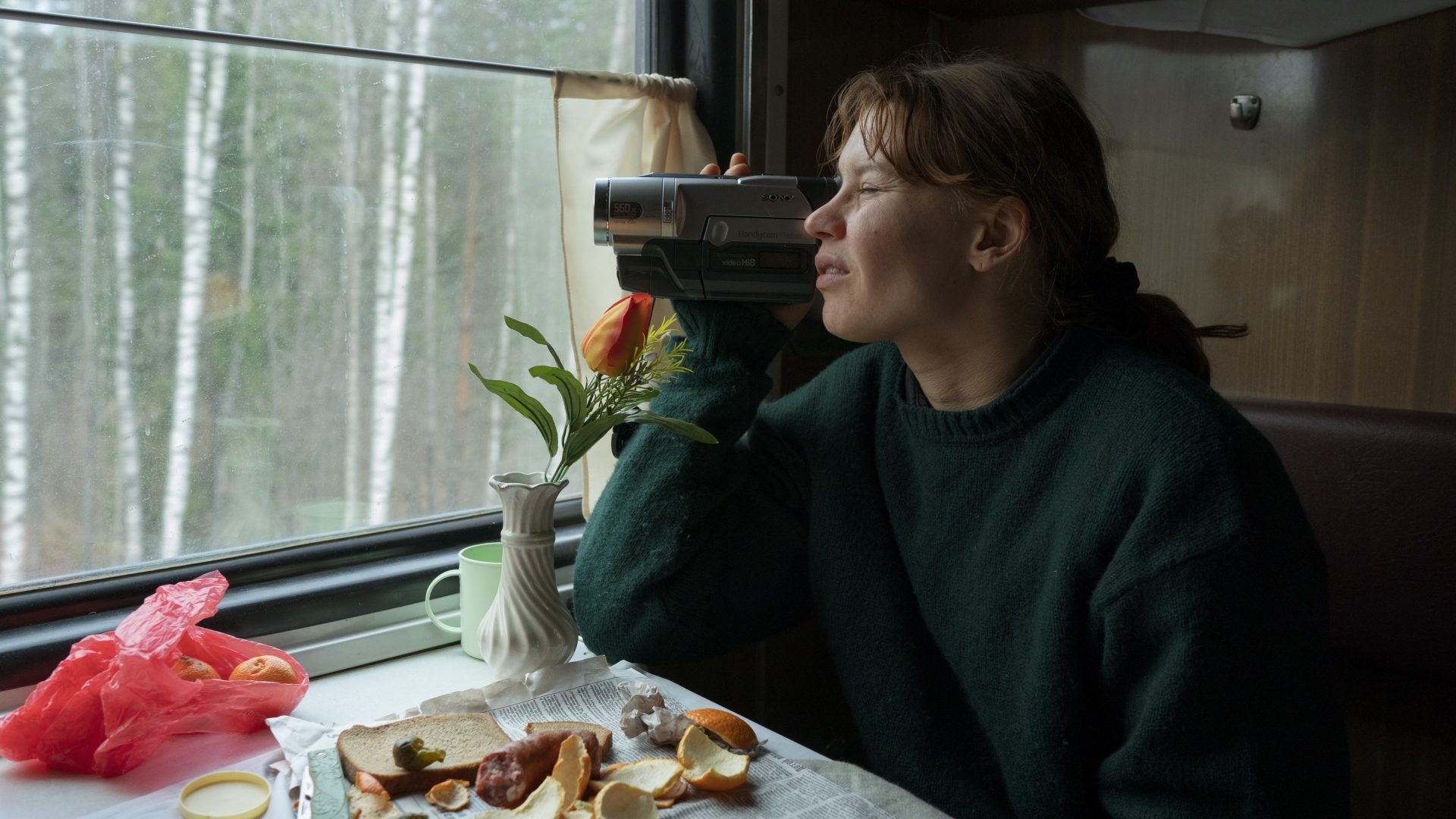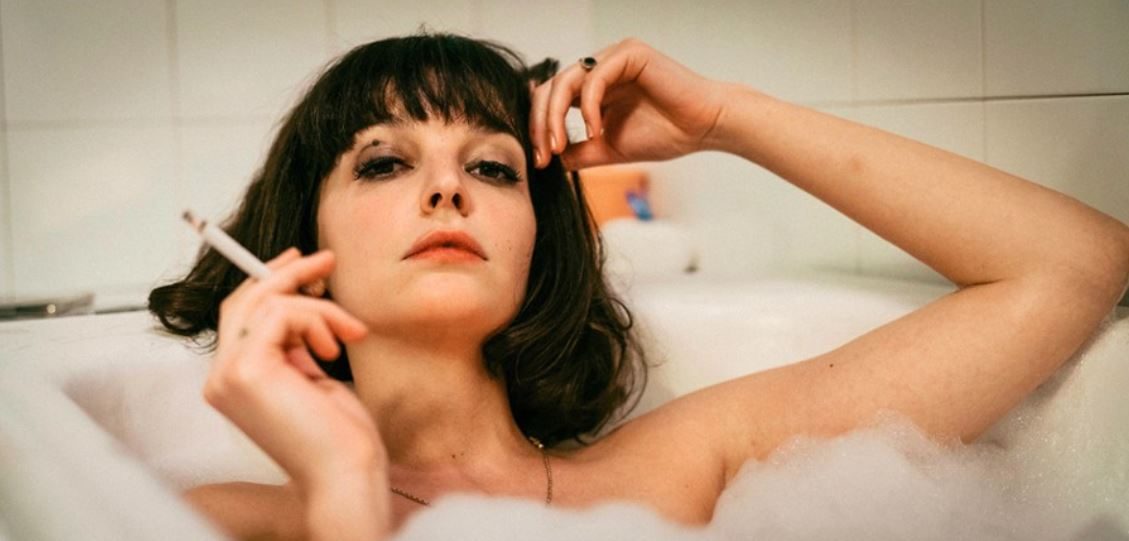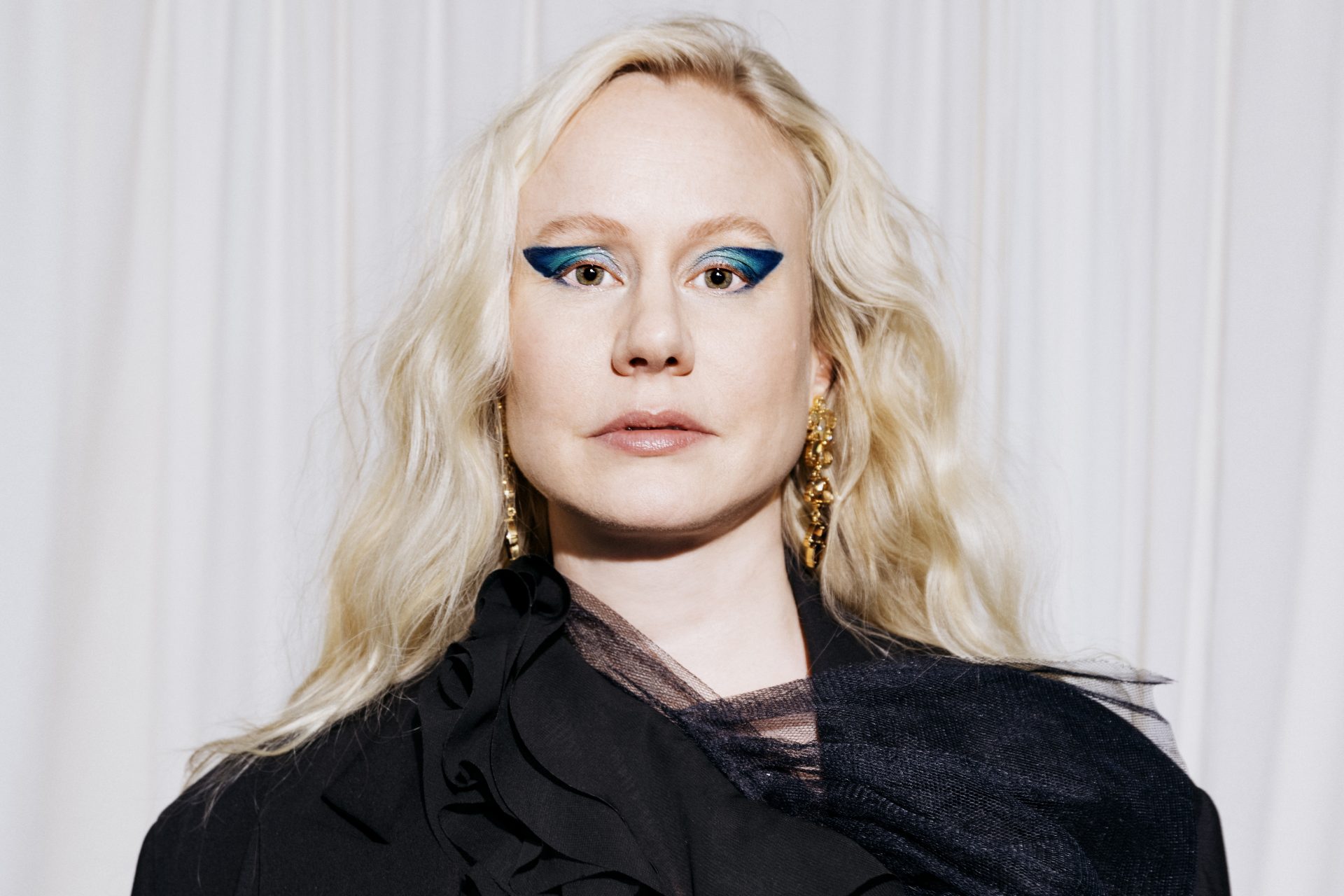Set in the titular cabin on a days-long train journey through desolate Russian cities and landscapes, Compartment No. 6 won a Grand Prix at Cannes last July.
Since then, the world has changed and you can’t view the film in anything like the same summer light. For its Finnish director, Juho Kuosmanen, it’s something of a nightmare. He has even thought about disowning the whole thing.
When his film was nominated for Best International Film at the prestigious Independent Spirit awards in LA earlier this month, he refused to allow his photograph to appear on the screen or in the programme next to his own movie. “I wanted a black square instead of my face,” he says. “In that category, they put up the flags of all the countries involved in co-producing the movies and I refuse to stand next to the Russian flag. I’m ashamed of it.”
This is an extraordinary turn of events for a movie that has been universally praised and warmly accepted but which, in the eyes of its director, is now being re-contextualised by outside events. Putin’s invasion of Ukraine has, he says, angered him so much that he can barely talk about the making of
his own film. True enough, there are moments in our interview where he
trembles with rage or with sadness.
Compartment No. 6 is about Laura (Seidi Haarla), a Finnish student in Moscow during the 1990s, who takes a long train journey north to see the
petroglyphs (stone age rock carvings) as part of her archaeological studies.
On her way, she is forced to share a sleeper compartment with a boorish,
drunken miner, Vadim (Yuri Borisov), heading north to Murmansk for a
new posting and seemingly intent on getting through as much vodka – and
jars of pickles – as humanly possible.
It’s an anti rom-com of sorts, a road movie and a train movie and a film about the journey being far more exciting than the destination.
“The destination is always a disappointment,” says Kuosmanen ruefully. “The more you expect, the more of a letdown it will be. That’s a very Russian concept, actually. Their belief in destiny is very strong and now, though, we see where that can lead to.”
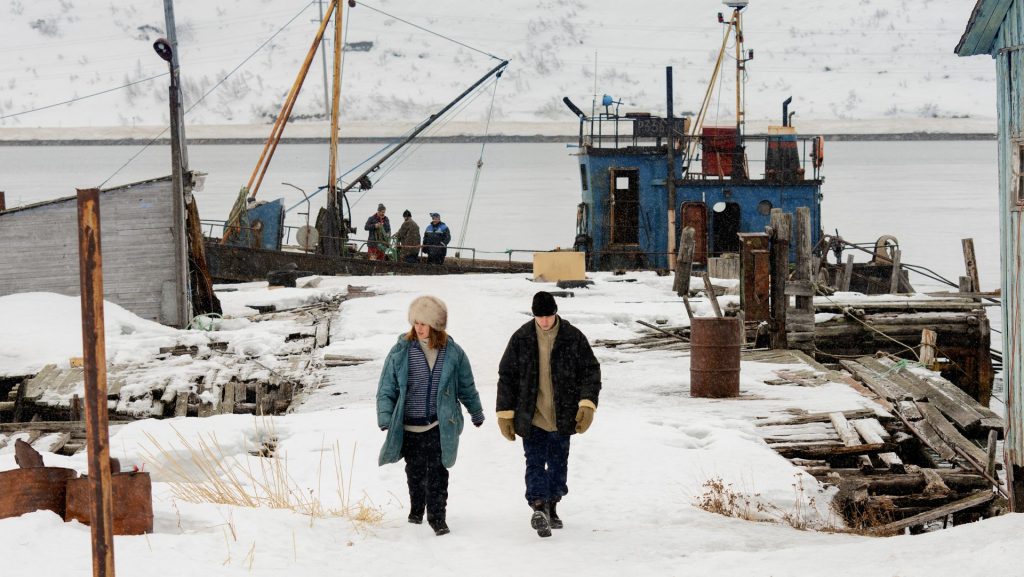
He says the war in Ukraine has now forced him to make up his mind about exactly when the film is set. Having previously stated it was in the 1990s, he is now telling people it was definitely in 1998. “I don’t want it to have anything to do with Putin at all,” he says. “He came in 1999 and my film must have no connection to him at all, so 1998 is when it has to be. Also, there’s some dialogue about the film Titanic, which came out in ’98 in Russia and which is, thankfully, the only reference which can date the movie.”
Until talking to Kuosmanen, I don’t think I realised quite how long a border Finland shares with Russia, nor quite how integrated they have been with their neighbours. Kuosmanen spent many days as a younger man taking long train journeys in Russia, just to explore and enjoy the ride.
“If you want to take a train from Finland, the only place you can go is Russia,” he explains. “And you can just sit for days and watch the landscape go by. It’s a weird zone you enter. You don’t necessarily want to get off at most of the towns where the train stops, but the act of travel itself is wonderful. Or it was.”
Of course, nobody can make that journey now, nor could Kuosmanen make his movie now. Especially, he says, because his film is about hope, the hope of understanding between two people who slowly get to know each other, and now there is no hope.
“It’s going to take decades for Russia to get back to itself, whatever that will be,” he says. “They had possibilities in the 90s although there was also very messy chaos, but there was a small period with a chance for the country to be a democracy and many Russians I know maintain a blissful nostalgia about this moment, about what could have been. But instead of becoming a democracy, it became a kleptocracy and lawless, which is why a strong leader like Putin was welcomed at first. But my film is now, for me, about that moment. That’s how I have come to look at it over the last few weeks.”
How amazing for the perceptions of a movie to be so altered by external events that have, ostensibly, nothing to do with it. He insists that it’s not even
a Russian film; it is based on a novel by the Finnish writer Rosa Liksom and
co-written, in English, with Estonian and German writers, before being translated into Russian for the script.
Does he speak Russian? “No, hardly a word,” he says. How did he understand what was going on, I wonder? “Well, I did write it originally so…” he breaks into laughter. “Perhaps we shouldn’t joke. I don’t feel much like laughing, although while we were making it in Russia, it was with very intelligent people, mainly English speakers who got their news from abroad and who knew what Putin was up to and we could joke about it then, but to be honest, this war has been going on for many years, and it was when we were there shooting.”
He says it didn’t matter to him what language was spoken, given that the film is about understanding on a human level. “The idea was to deal with the concept of ‘other’, how we see other people and how that’s usually coloured by our preconception of nationality and class and education, and on this journey we see through all the things that distance ourselves, to see behind the barriers, be it an iron curtain, or a layer of prejudice,” he says. “These characters start as Finnish female student and Russian male miner, but these are roles they hide behind, it’s not really what they are as humans and the journey helps them overcome these preconceived roles.”
I tell him, in that case, the film is even more urgent and relevant than before, but it’s a rather fruitless suggestion for the despondent Finn. “It wouldn’t make any difference now, it can’t. Maybe in many years’ time it will have a point, to show if we talk and listen, then we can see the truth. But now, it’s very hopeless.”
Following Cannes, his film was a big hit last autumn at Sochi, where the important Russian film festival of Kinotavr is held. “We were considered the most Russian film there,” he exclaims. “I was pleased about that because it’s a festival run by famous Russian producer Alexander Rodnyansky. But he’s Ukrainian, actually, and he’s been a long-standing critic of Putin and now, I don’t know where he is, where he’s gone. He’s criticising the war on social
media, but he’s certainly not in Russia any more.”
Rodnyansky is the producer of many of the films of Andrey Zvyagintsev, internationally garlanded films such as Loveless and Elena and Leviathan, which have constantly satirised Putin’s Russia, although often too subtly for
Putin’s censors to notice. I tell Kuosmanen that I thought Leviathan – a superb film about a corrupt mayor and his bid to tear down a car mechanic’s house for the land – was a particular influence on his own film, especially in the later stages when they do get to their destination.
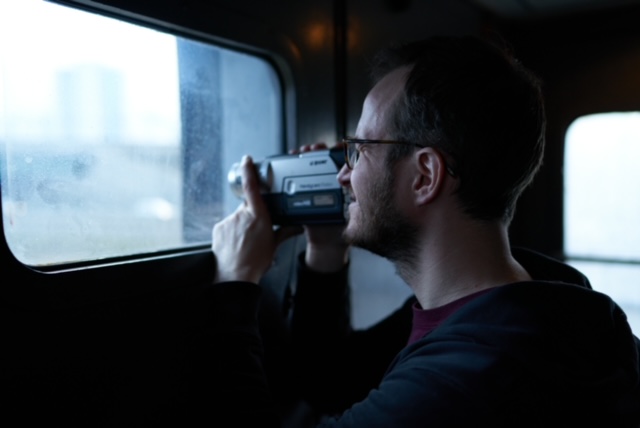
“Ah, that’s because we shot in the same town as that film,” he says. “We were yards away from the house they built and destroyed for that movie.” It’s in the extraordinary spot of Teriberka, north of Murmansk, on the Barents Sea, where the hulks of many ships still litter the coast like a graveyard. Oddly, it is becoming a destination for Chinese tourists who come by the trainload. “The only place to eat there is basically a Chinese takeaway,” he says with a grin.
Compartment No. 6 is a lovely film to watch but its rough edges and Russian
bleakness give its cold winds and snows both a human warmth and a stark beauty. There is still something romantic about it, I insist, in the long train journey and in the relationship in this cabin that thaws slowly, along with the Arctic ice.
Kuosmanen is still rather gloomy, in his deadpan Finnish way, a resignation
leavened with glum humour. “After Cannes, I saw many people suggesting
the film would make that train journey a popular route, you know, that fans
would follow the journey and it would become a famous location. But that
can’t happen now, of course.”
You mean, he could have put Murmansk on the weekend-break map? “Well, it’s not the prettiest place to be honest, but also the mayor of Murmansk, he’s a big problem, a Putin crony, so nobody’s heading there any time soon for tourism, I’d say.”
We talk about other subjects,to change the signals, the train of thought, indeed. We chat about favourite train movies and which of those he watched for ideas and inspiration. He sends me a list he made for his viewing homework – it includes Runaway Train, that great, existential train movie from 1985, starring Jon Voight and Eric Roberts, directed by the Russian Andrei Konchalovsky and based on a story by Akira Kurosawa; there’s also Von Ryan’s Express, Hitchcock’s Strangers on a Train, Jean Renoir’s La Bête Humaine as well as David Lean’s Brief Encounter.
Compartment No. 6 certainly takes its place among those but right now, along with many of us and so many Finns, it’s the country across the border that occupies his thoughts.
“We’re scared because we have many little islands off our coast which have
been bought and built on by oligarchs, and there have been so many helicopters coming and going from them. They’re supposed to be holiday
places, where lots of families have had holiday homes for many years in
this archipelago, but now the oligarchs have bought so many islands and
they’re like military bases. So we are very worried.”
But you can’t disown your movie just because it’s shot in Russia, I say? It’s
still a very good film, and you can hope that whatever the shifting geopolitical situation, people will see that it has a timeless quality, that the
Russian element will not be what dominates? Although, of course, I’m saying that after 30 minutes of talk about its Russian elements, so…
“I wish it was a film of no nation,” Kuosmanen says, with another sigh.
“That’s my intention, and that it can spark connections when all this is over
and that people can enjoy it without thinking of Putin at all.” He pauses. “Imagine how the world might have been if we could just have been shut
in together in a train compartment to get to know each other..?”
Compartment No. 6 is in UK cinemas and on Curzon Home Cinema from April 8


